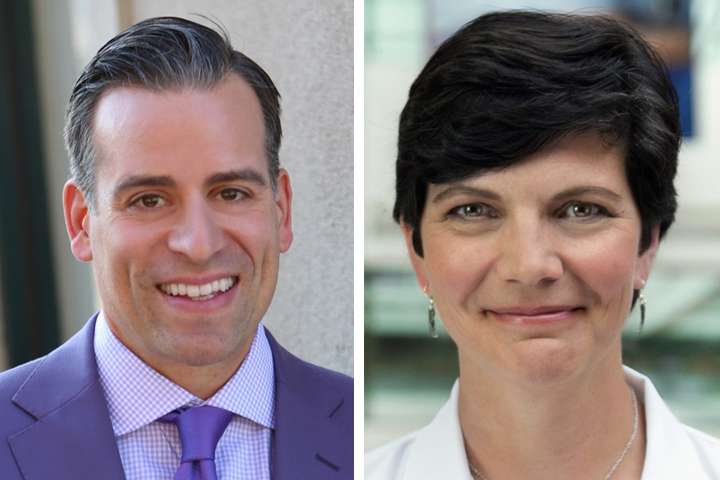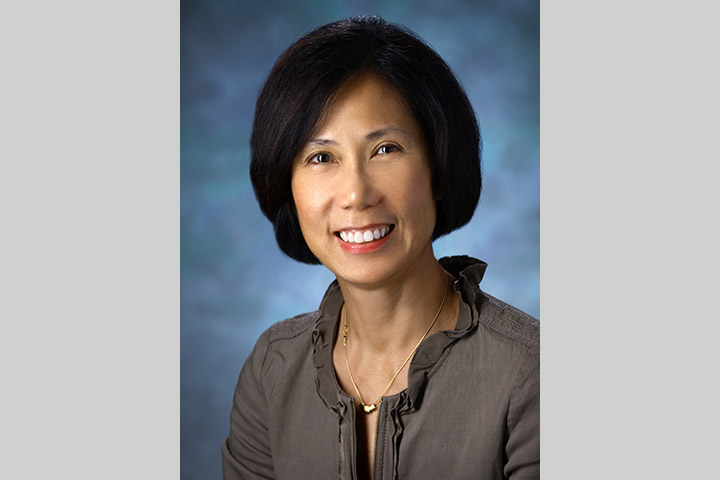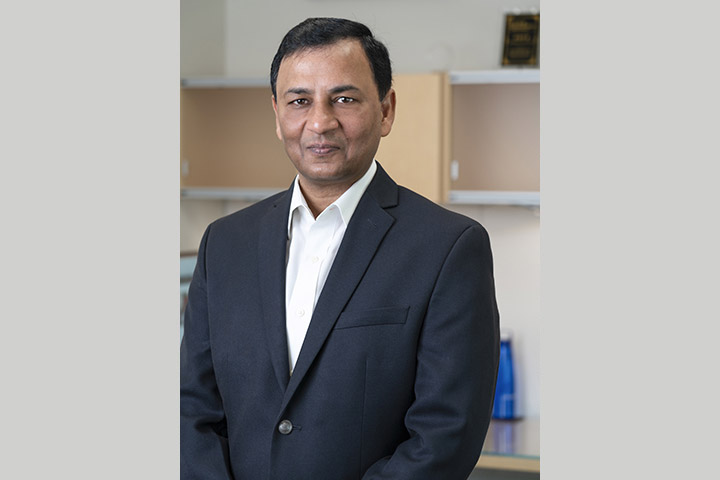Earlier Detection of Pancreatic Cancer: A Marathon, Not A Sprint

Dino Verrelli is no stranger to cancer.
Back in 2001, his mother Paula was diagnosed with breast cancer. In 2008, his father, Gionvanni, was diagnosed with pancreatic cancer. “I knew breast cancer was bad, but my mom was doing really well,” says Verrelli, a former financial services entrepreneur. “But when my dad was diagnosed with pancreatic cancer, all I knew was that pancreatic cancer was really, really bad.” His dad was fortunate. He was a candidate for surgery and adjuvant treatment.
But the cancer came back and Giovanni died September 5, 2011. “I learned a lot since I was the one family member that had the most flexibility, so I took him to every single appointment,” Verrelli explains. “There wasn’t a lot going on in the pancreatic cancer space back then. There wasn’t a lot of research. There weren’t a lot of new drugs or new approaches. I figured I could do something that could help.”
Becoming Purple
Out of that simple and resolute thought Verrelli founded the Seymour, Connecticut-based pancreatic cancer advocacy group Project Purple in 2010. “The premise is pretty simple,” Verrelli says. “We want to help patients, scientists, and physicians get what they need to beat this disease.”
Project Purple’s primary fundraising comes from participating in marathons, half marathons, and 5K races across the United States, including the top U.S. marathons. The Project Purple team includes runners from all over the world, most of whom have firsthand knowledge of the disease either personally or professionally. The funds raised provide funding for research as well as financial support to pancreatic cancer patients who may be struggling with medical bills and the expenses of daily living.
Science is a major priority for Project Purple, especially in the area of early detection. They have already awarded funds to several top-tier hospitals, including Beth Israel Deaconess Medical Center and Tufts Medical Center (both in Boston), and University of Nebraska Medical Center (Omaha).
Project Purple is also the founding supporter of an important new initiative called PRECEDE, or Pancreatic Cancer Early Detection, Consortium, coordinated by the NYU Langone Perlmutter Cancer Center in New York.
PRECEDE is important to Verrelli for several reasons. He knows earlier detection gives patients a shot at surgery and a cure. He also knows that early detection may wind up saving his life and the lives of his own family.
A Firsthand Experience with BRCA
In 2016, Verrelli decided to sell his financial services business and devote his efforts full-time to Project Purple. But life takes some funny turns. It was also the year his mom got some bad news. Her cancer had returned. But nearly 15 years had gone by and great strides had been made in the molecular profiling of tumors. She found out she was BRCA positive, which influenced her subsequent treatment. Today, she is again doing well.
But discovering that their mother carried this inherited mutation put Verrelli and his older brother at increased risk. Although BRCA germline mutations are mostly associated with breast and ovarian cancer in women, the mutation also increases the risk of prostate and pancreatic cancer. And men are also at risk of developing breast cancer. “I knew I needed to get tested but I got busy and I guess those are famous last words,” he says.
In 2018, Verrelli got sick. He was jaundiced, had a rash, and was in pain. Testing showed he had a blocked gallbladder; he had immediate surgery. He was receiving treatment at the University of Nebraska where they also tested him for the BRCA mutation. He tested positive.
While back in New York for a Project Purple meeting, Verrelli ran into a physician from NYU Langone who insisted he see internationally-recognized surgeon and pancreatic cancer researcher Dr. Diane Simeone, the Laura and Isaac Perlmutter Professor of Surgery and Professor of Pathology at NYU Langone. Simeone has a special interest in combatting pancreatic cancer from all angles, including studying those who are at high risk of developing pancreatic cancer.
“I remember at our first meeting I started to tell her about Project Purple and maybe she needed some funding,” Verrelli recalls. “She told me straight up this meeting was about my health and my life, and a discussion about my nonprofit funding could wait for another time,” he says. “That was the point I knew I was in some pretty extraordinary hands.” Verrelli was placed in a pancreatic cancer screening program and feels confident in his ongoing care. “I’m not afraid,” he adds. “Knowledge is power.”
A Consortium Is Born
But Verrelli wanted to give back somehow and he finally had that meeting with Simeone on what could possibly be done to help other people like him, the high-risk group. From that effort, Project Purple became a founding sponsor of the PRECEDE Consortium initiative.
The PRECEDE Consortium brings together clinicians, researchers, and high-risk patients with the goal of increasing the five-year survival rate of pancreatic cancer. Currently, that rate hovers at about 10 percent. PRECEDE’s overarching goal is to increase the five-year survival to 50 percent within the next 10 years.
Ongoing research reveals there are about 15 known genes associated with the risk of developing pancreatic cancer. About 10 to 15 percent of pancreatic cancer patients have a germline mutation (mutations passed on from parents to offspring) that increases pancreatic cancer risk, even in the absence of a positive family history, explains Simeone, who directs the Perlmutter Cancer Center’s Pancreatic Cancer Center.
“What we know is that some patients with particular germline mutations may respond much better to certain drug treatments,” says Simeone. “When you can match the right drug combination to the right patient there can be an incredible benefit,” she continues. “Part of our goal is to increase identification of family members who are at higher risk. That way they can be enrolled in early detection protocols and have an improved chance at a much better outcome.” Research also shows that screening high-risk patients increases the chance of detecting a resectable lesion from 15 to up to 90 percent.
Under the direction of Simeone and her team, NYU Langone serves as the coordinating center for PRECEDE, which includes 36 academic centers across the world, all with a strong focus on early detection in familial high-risk individuals.
With support from Project Purple, the Consortium has established a shared data platform. The consortium expects to enroll more than 3,000 high-risk individuals with standardized collection of data and biosamples to drive critical early detection research in a variety of areas, including biomarker validation, comprehensive risk modeling, deeper studies in germline genetics, and risk communication. “Let’s be clear, this disease needs earlier detection,” Simeone says.
“For a complex problem like early detection, we can’t work in silos. We need a large-scale effort, a platform for cutting-edge scientific discoveries that include work in cancer susceptibility genes, the contribution of environmental risks, a blood test validated in a high-risk population, and improved risk modeling. Ultimately, we may be able to conduct prevention clinical trials in those at elevated risk of the disease. One of the ways we are going to get there is by sharing data, which is critical. You have to share data to get where we need to go.”
To help patients determine their risk of developing pancreatic cancer, the Pancreatic Cancer Center, in partnership with the University of Michigan Rogel Cancer Center (Ann Arbor), has developed a pancreatic cancer risk assessment tool. If the tool suggests that someone has certain risk factors, they can be put in touch with a genetic counselor and pancreatic cancer specialists at the Pancreatic Cancer Early Detection & Prevention Center at Perlmutter Cancer Center.
“We are really very excited by all this,” Simeone says. “Project Purple’s commitment in both terms of money and time is incredible. This is going to make a difference for patients.”
Verrelli is also excited about the progress being made in pancreatic cancer. “We’ve got a ways to go but everything is going in the right direction,” he says. “You are in your own little world until cancer hits you or somebody you love. So there’s no time like now to do something. All I had was a little idea that turned into something bigger. I promised my dad I would do something. I don’t break my promises.”





